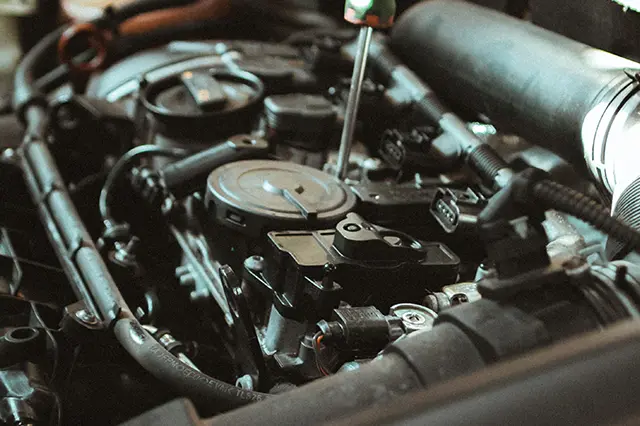
Does a car last longer if you replace engine?
One of the biggest decisions you’ll make when purchasing a car is which engine to choose. Of course, there are dozens of different models and options to consider, but which one is the best for your needs? Many people believe that a car lasts longer if it’s replaced with a new engine. After all, newer engines are supposedly more reliable and have better fuel economy. However, is this really always the case? In this blog post, we will discuss the pros and cons of replacing an engine in a car and see if it really does make a difference. We will also give you some tips on how to choose the right engine for your needs.
How long does a car usually last?
If you’re thinking about replacing your car’s engine, there are plenty of factors to consider. Factors like fuel economy, car model, and age all play a part in how long a car will last. But in general, most cars will last around the same amount of time with or without an engine replacement. Here’s a look at how long different car models typically last:
Chevrolet Cobalt – The Cobalt is considered a “mid-size” car, so it’s not as fuel-efficient as some other models on the market. However, Chevy has confirmed that even with sluggish gas mileage ratings, the Cobalt still lasts between 10 and 12 years with regular maintenance.
Ford Fusion – The Ford Fusion is one of the top performers when it comes to longevity. research by The Car Connection found that the 2007-2011 Ford Fusions averaged around 11 years and 100 thousand miles before needing an engine replacement.
Nissan Altima – The Nissan Altima is another popular option for drivers looking for an affordable sedan that still offers decent performance and longevity. According to CarMax, the 2009-2013 Altimas averaged around 12 years and 135 thousand miles before needing an engine replacement.
Toyota Camry – If you’re looking for a reliable family sedan that can handle lots of wear and tear, the Toyota Camry may be a good option. According to CarsDirect, the 2006-2012 Camrys averaged around 14 years and 160 thousand miles before needing an engine replacement.
Mazda 6 – The Mazda 6 is another popular option for drivers looking for a reliable car that won’t break the bank. According to CarsDirect, the 2007-2013 Mazda 6s averaged around 12 years and 160 thousand miles before needing an engine replacement.
Honda Accord – The Honda Accord is one of the most popular cars on the market and for good reason. According to CarsDirect, the 1998-2004 Honda Accords averaged around 17 years and 250 thousand miles before needing an engine replacement.
Volkswagen Jetta – The Volkswagen Jetta is another reliable car option that won’t break the bank. According to CarsDirect, the 1997-2004 Volkswagen Jettas averaged around 16 years and 220 thousand miles before needing an engine replacement.
Nissan Maxima – If you’re looking for a car that can handle a lot of traffic and occasional highway driving, the Nissan Maxima may be a good option. According to CarsDirect, the 1998-2004 Nissan Maximas averaged around 17 years and 240 thousand miles before needing an engine replacement.
In general, cars usually last around the same amount of time with or without an engine replacement. However, there are a few models that have proven to be more durable and last longer than average. So if you’re considering a car purchase, be sure to take these factors into account.
What is the Engine Lifespan
The lifespan of an engine can vary depending on the make, model, and year of a car. In general, engines in newer cars tend to last longer than those in older cars. However, there are many factors that can affect how long an engine will last, including how it’s treated and maintained.
In general, engines in newer cars tend to last longer than those in older cars. This is because new engines are typically designed with longevity in mind. Older engines may not have the same durability as newer ones, and may eventually need to be replaced.
However, there are many factors that can affect how long an engine will last. Engine type, for example, can determine how long it will last. Engines that use gas and oil typically have a shorter lifespan than those that use electric power or hybrid technology. Maintenance also affects the lifespan of an engine. Poorly maintained engines may eventually require replacement due to wear and tear on parts such as bearings or pistons.
Overall, the lifespan of an engine depends on a number of factors, including make, model, and year of the car.
Factors that affect how long a car lasts
There are a few different factors that can affect how long a car lasts. The most important thing is to take care of the vehicle and avoid major accidents. There are also a few things you can do to improve the lifespan of your car. Here are some tips:
-Avoid hitting objects or other cars: This will damage the vehicle and can lead to costly repairs down the road.
-Regularly check fluid levels, brakes, and tires: Doing these tasks regularly will help keep your car running smoothly and prevent it from breaking down.
-Keep up with regular maintenance: This includes oil changes, tune-ups, and tire rotations. Failure to do these tasks can lead to serious problems down the road.
-Avoid overloading your car: This can lead to worn out parts and increased repairs.
-Avoid driving in extreme weather conditions: This can also damage the car and lead to costly repairs.
-Follow the manufacturer’s guidelines: This will help ensure that your car is operated in a safe manner and avoids any potential damage.
What to do if your car’s engine is failing
If you’re having trouble with your car’s engine, there are a few things you can do to try and fix the issue.
One thing to check is if the car has an automatic transmission. Many engine problems are related to the transmission. If your car has an automatic, it may be worth investing in a new one rather than trying to repair or replace the engine.
Another thing to check is if there are any fluid leaks. Checking for fluid leaks can help you diagnose the root of the problem and decide if replacing the engine is necessary.
If nothing seems to be working, you may have to replace the engine. There are a few different types of engines available, so make sure you find one that will fit your car and meet your needs.
Conclusion
Replacing an engine in a car can be a cost-effective way to improve its lifespan. However, make sure to do your research first and find a reputable mechanic who will be able to install the new engine without causing any damage. Also, be sure to factor in the cost of replacement parts when making your decision.
